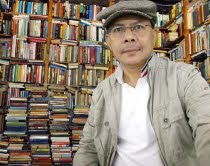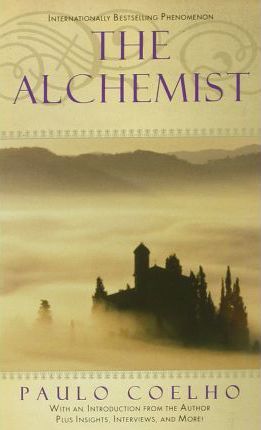By Dr
Paridah Abd Samad
The day the Malays decided not to be fooled
MALAYAN UNION FALLACY: April 1 was a historic occasion when the Malays, with their rulers at the helm, rejected British overtures
THE Malayan Union came to existence on April 1, 1946, and
would have made a fool of the Malays.
Sixty-eight years ago, the collapse of the Malayan Union on
this day saved the Malay Rulers from irrelevance.
Some analysts considered the plan of the Malayan Union as a
purposeful conspiracy to diminish the existence of the Malay royal institution
in the country.
Under this radical plan, all the Malay states were to be
merged into a unitary state (the Malayan Union) that offered equal citizenship
to both Malays and non-Malays (the Chinese and Indian immigrants), removed the
Malay Rulers' sovereignty and transferred it to the British Crown.
With the form of a unitary state, this could have eroded the
individual Malay states as the foci of loyalty and activity among the Malays.
The plan was thought as a form of a British punishment for
the Malays, who were accused of collaborating with the Japanese after the
British surrender in 1942, which led the British administration to become
increasingly sympathetic to the non-Malays' cause and agreed for the inclusion
of their civil rights in the political progress of Malaya.
The plan of the Malayan Union involved the non-Malay leaders
lobbying the British government in London.
In fact, informal negotiations regarding the plan between
Sir Malcolm MacDonald, the Governor-General of Malaya with Tun Tan Cheng Lock,
the founder of the Malayan Chinese Association (MCA) had taken place during the
war.
By restructuring the governing system in Malaya under the
Malayan Union, the non-Malays could participate actively in governing and
administering the government.
This bequest was brought at a time when the Malays were
still feeling the after effects of the ruthless Communist Three-Stars (Bintang
Tiga) Chinese guerillas.
Before the British returned to take over power from the
Japanese, the Communist Party of Malaya (CPM) ruled the Malay states for a
brief 14 days. The period was associated with hostility as the Chinese
guerillas took the opportunity to take revenge against the Malays.
From Oct 20, 1945 to Dec 21, 1945, Sir Harold MacMichael had
all the nine treaties in hand. The sultans were given only one choice, which
was to sign the new treaties to keep their posts. Their refusal would mean
their removal from office.
It was Datuk Onn Jaafar, through the force of his magnetic
personality and oratory powers, who welded the Malays under a single cohesive
banner, and succeeded in bringing an end to the Malayan Union.
He and other patriotic political comrades managed to unite
the Malays for the first time against one foe, to protect the sovereignty of
the Malay Rulers. They were fighting to survive as Malays and to exist as
Malays.
An explicit objective of the fight was to strategically
oppose the abysmal Malayan Union. The enthusiasm of "the Malays must
unite", consequently, saw political parties and associations formed all
over the country to fight the plan.
On the day of Sir Harold McMichael's arrival in Kota Baru at
the end of December 1945, a crowd estimated at more than 10,000 confronted him.
On Jan 3, 1946, the Peninsula Malay Movement of Johor
managed to unite more than 100,000 Malays in Batu Pahat, creating the biggest
political Malay movement in the history of its homeland.
In February, the first rally was held in Batu Pahat attracting over 15,000 Malays. This was a superb piece of organisation, as at that time mass rallies were unheard of in Malaya.
At the historic gathering of the first Pan-Malayan Malay
Congress on March 1, 1946 at the Sultan Sulaiman Club, Kampung Baru Kuala
Lumpur, a resolution was unanimously resolved: first, to oppose the Malayan
Union and second, to form the Pertubuhan Kebangsaan Melayu Bersatu (Pekembar)
that would later become Umno.
Meanwhile, under the leadership of Dr Burhanuddin al-Helmy,
the Malay Nationalist Party (Parti Kebangsaan Melayu Malaya) organised a
congress to unite the Malays and non-Malays in favour of the Malayan Union.
The incongruity of support for the Malayan Union was partly
explained by Dr Burhanuddin's close relationship with the non-Malay leader
Cheng Lock and several high-level British government officers.
On March 29, 1946, at the inaugural Malay Congress, the
members of all the Malay associations were urged to wear white cloth on their
songkok (a Malay head cover) as a sign of protest, connoting their mourning for
the loss of the political supremacy of their sultans.
The intensification of protest was validated by the fact
that Malay women, for the first time, took part in this open demonstration.
The sultans were warned that their presence at the
investiture ceremony of the establishment of the Malayan Union would cause
emotional upheaval and social unrest, as attending the ceremony was equivalent
to bearing the funeral of the Malay race itself.
On the morning of April 1, 1946, Onn ensured the gathering
of thousands of Malays, male and female, in the grounds of the Station Hotel
Kuala Lumpur to appeal to the sultans not to attend the ceremony.
From the balcony, the sultans could see thousands of Malays
with a white cloth over their songkok, shouting loyal slogans "Long live
the Kings -- Daulat Tuanku!" three times, with tremendous emotion in their
voices, and tears in their eyes.
An unprecedented gesture by identifying themselves in public
for the first time, the sultans endorsed and conceded the delicate shift of
power to the people. None of the sultans attended the ceremony. This was indeed
a big blow to the British government.
The British government agreed to the formation of the
Federation of Malaya on Feb 1, 1948. The feudal Rulers were to be maintained,
which bolstered the Malays and their hundreds of years of traditions, and a
more difficult requirement for citizenship.
Indeed, 70 to 80 per cent of the Chinese and Indian
immigrants would have qualified for citizenship under the Malayan Union.
If the British had not introduced the Malayan Union in 1946
but had carried on in the same manner as before the war, it was unlikely that
Umno would have emerged since the Malay elite found little justification to
quarrel with the British.
In fact, the nation's independence might have materialised
much later and also differently. Onn asserted the need to improve the
socio-economic circumstances of the Malays before pursuing independence.
The first day of April would likely be an ordinary day for
many in Malaysia.
To some playful others, it is April Fool's Day marked as a
celebration of practical jokes.
But it is also a historic day in which a race came together
unprecedentedly from all corners of Malaya and stood for their identity,
traditions and as importantly, their kings.





